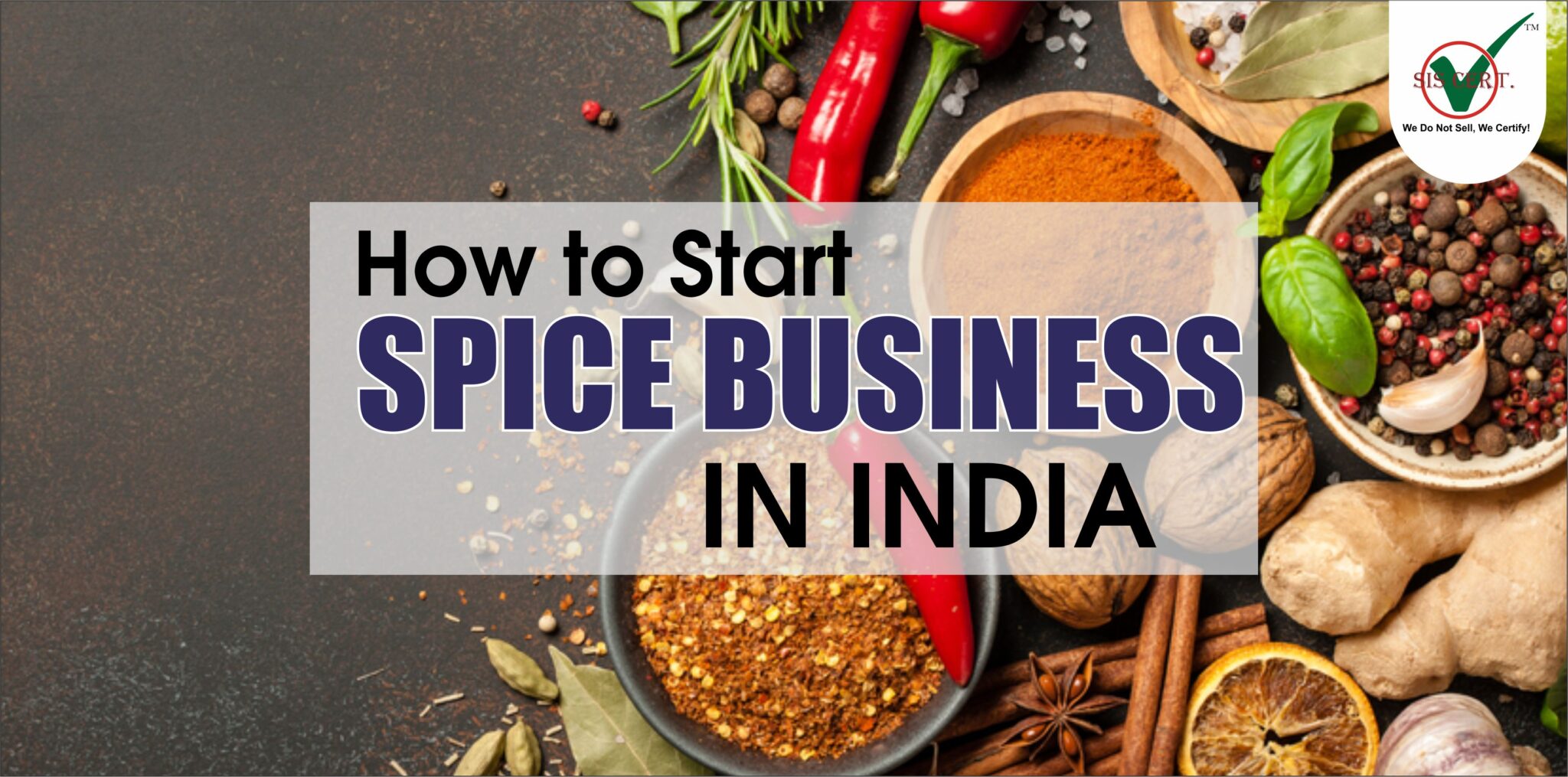We Indians are insane when it comes to food. We are divided through states, but one thing that keeps us connected is “Spices”. The spices strongly influence our every festival, event and even everyday lifestyle. Therefore, for your knowledge, we present you with a blog where we talked about the 7 processes of starting a spice business in India.
India is a prominent spice producer and exporter. It is also recognized as a profitable company within India. Anyone can start this business as a small, medium and large-scale base depending on their investment capacity. Spice powder is an essential ingredient in cooking. None of the Indian food is made without it.
Let’s begin with an in-depth understanding of the spice business in India.
MARKET OPPORTUNITY FOR SPICE BUSINESS IN INDIA ⮯
India is known as “the home of spices”, an Indian spice sought globally because of its taste, texture, aroma and medicinal properties. India produces approximately 75 of the 109 varieties listed by the International Organization for Standardization and represents almost half of the global trade. It is the number one exporter of this product. Its internal demand is thriving since it is a mass consumer product mainly used in culinary products or food seasonings.
With varying lifestyles and particularly with changes in dietary habits and increased incomes, these use has increased. There is a requirement for various certificates or permits to start the business.
7 FACTS ABOUT STARTING A SPICE BUSINESS IN INDIA. ⮯
To set up this business in India successfully, you need to know the following facts:
COSTS ASSOCIATED WITH THE BUSINESS: ⮯
The Indian market is expected to reach approximately $18 billion by 2020. India is the largest producer, producing 50 different spices that people seek for ready-to-use food, and this powder makes their cooking more accessible.
Few important cost considerations are highlighted in this respect.
- These are practical to use, and it saves time and physical effort in preparing different delicious cuisines.
- Every commercial food industry, such as hotels, restaurants, catering and many others, uses these powders daily.
- This powder makes it an easy and profitable business to start, and you can start that business with small investments.
- Initial investment: INR 50000 to INR 100000.
- Space requirement: 250 square metres.
- Profit Percentage: between 50% and 70%
- Income: Average sales of 100 kg/day, from 50,000 to 150,000 per month.
- Other additional expenditures will include equipment maintenance, employee salaries and marketing fees.
LICENSING REQUIREMENTS: ⮯
Since spice powder falls under the food category, it must therefore comply with a wide range of government regulations, including:
- The registration of the enterprise must be carried out on the scale of the business, if it is Pvt. Ltd. or partnership or sole proprietorship. The company shall be recorded accordingly.
- Registration of the GST is also essential for getting a GST number.
- With an SME, companies may register and get facilities and grants from the state government.
- Get a commercial licence, FSSAI and apply for a trade-mark, Udyam/MSME Registration BIS and IEC certification.
- Businesses must get ISO 9001 certification for ensuring efficient products and services to the customers.
- It is recommended to get the AGMARK certificate.
SPACE REQUIREMENTS: ⮯
- You don’t need a massive space to start the business, about 250 square meters can be used for processing pieces, and another 250 squares is required for packaging.
- Check the commercial space or basic conveniences such as water, electricity, etc.
- The state government has restrictions on starting the food business from home, so make sure the location is under the government’s law.
- Ensure the site is convenient and easily accessible to the target market.
RAW MATERIALS REQUIRED: ⮯
The essential ingredients required in this powder are unrounded products, and with raw materials, you will need wrapping materials that will act as a shield for the powder.
MACHINERY UTILIZATION: ⮯
- The grinding machine is the machinery required in this business. According to the scale of industries, the equipment is employed.
- Large-scale industries use the impact pulverizer machine, while small-scale industries use the two-stage pulverizer.
- Other machines like spice mill, balance, packing machine, compressor, and the roster are also required.
MANUFACTURING PROCESS: ⮯
- CLEANING: It is a very initial process for the production in which the unrounded material are cleaned manually by eliminating impurities such as stone, dust and dirt.
- DRYING: After cleansing and washing them, display them in full sun to dry. The quality of the powder will depend on the well-dried product. If cleaning and washing do not occur, it will lead to bacteria that poison food.
- ROASTING: Once it is dry, they proceed through the roasting process. Roasting is essential as it will help to give flavour, colour and good taste to the powder.
- GRINDING: The grinder is used for pulverization to convert spices into powder.
- GRADING: Grading is a process that provides the basis for the inclusion and proportion of mixed with the raw material used. It also depends on the spices (aroma), size, shape, density and colour.
- SIEVING: Make sure the powder has a consistent mesh.
PACKING THE PRODUCT: ⮯
Seasonings and spices add a lot of flavour to your favourite foods, but they must be fresh to make their magic work, so proper packaging is mandatory.
Protect and keep the spices and seasonings with zip pockets, and these packaging bags will give you the flexibility of choosing the best size, style and characteristics for the product. Choose from options such as gas release valves, teargas notches, heavy-duty zippers, suspension holes, spouts, and various styles that give you lots of space to bring the brand to life.
Once it is converted into powder, then the quantity-weighted has to package. These are then packaged in a polythene pouch and sealed using the sealing machine.
The pouches will protect the product from moisture, perforation, odour and more. You guarantee that your seasonings and spices are safe from the warehouse to your customers’ taste buds.




